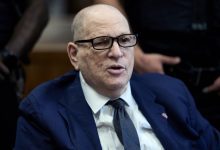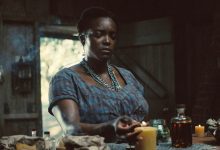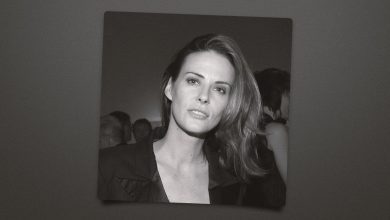Alex Rodriguez Comes Clean
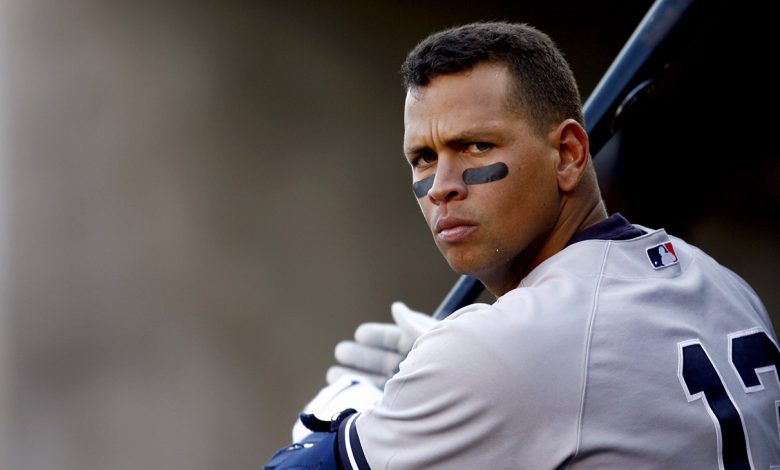
Throughout his Hall of Fame-worthy (go ahead and @ me, bro) Major League Baseball career, Alex Rodriguez did not always play clean. In new HBO docuseries Alex vs. ARod, directed by Gotham Chopra and Erik LeDrew, Rodriguez finally comes clean about his on-again, off-again performance-enhancing drug (PED) use, and the untruths he told to cover it up along the way.
In the doc as well as in our conversation below, Rodriguez, now 50, is forthcoming, thoughtful and an excellent conversationist. If only he had been able to tap into this part of himself a decade earlier, baseball writers may have given him a pass to Cooperstown by now. But in life, as in baseball, not everything’s a home run — there are errors and strikeouts along the way, too. Alex vs. ARod taps into all most of that.
Stepping up to the plate for a The Hollywood Reporter Q&A below is number 13, Alex Rodriguez.
***
You could have done a documentary years ago or years from now — or, of course, never. Why did now seem like the right time for you to open yourself up?
I’ve been asked about doing some type of documentary probably for the last 15 years, and I just never thought about it. It was always a quick, hard, “No way. I’m too close to it. Too soon. What’s the purpose?” All these years later, I think I have the perspective going back now to say, “You know what? I’ve never really told my story in any way, shape or form. And there’s some things that have been told about me that are super accurate and some that are wildly inaccurate, and I’ve never really tried to play the correction game. One is that there’s this centaur — half-horse, half-me — painting in my apartment. I mean, this (Rodriguez on Zoom gestures to surroundings) is my apartment. I promise you, there’s nothing like that here. But I’ve never tried to correct that. That’s been a [reported] story out there that’s never been corrected, because I think it’s actually comical. But that’s one example of something that never happened and will never happen — not because I don’t have a healthy ego, I’m just not that creative.
It was important [to do the docuseries] too, because my lessons were so ugly and deep and punitive. So much was at stake — I lost that Hall of Fame and other things — that as I mentor kids today, one of the things that I do is I always lead with my biggest mistakes, and if my mentees can take one thing away, is if they can avoid one of my mistakes, that is a big [reason].
I’m biased in your case. But I’m also a writer and in general, I don’t like the punitive nature of baseball writers withholding the Hall of Fame from PED users. Do you really think you’ll never get in? Like, not late, not even posthumously — which I still believe would be unfair — but never?
I don’t know. Honestly, I don’t know. I hope for the best, plan for the worst. In many ways, that’s why I’ve given up on it already, because I knew the rules. I broke [them]. I gotta lay in my bed now, and that’s the league we live in, and I’m not gonna change that. But what I can do is take those lessons, learn from them and move it forward. I’ve done the best I could over the last decade.
I had this as a Top 10 World Series ever before Game 7. Now I have it Top 5, though I admit I don’t actually have spelled-out rankings. Where would you rank this past World Series?
Well, I’ll tell you. I’m 50. I don’t remember the first five, but I’ve probably watched every World Series game the last 45 years. I’m lucky that I played in six of them. For Fox, I cover them and analyze them and study it. I think it’s top five, and I have reasons for that. As far as just viewership, if you look at the last 10 years, we’ve probably averaged somewhere between 12-14 million people watching. This year, Game 7 was at the peak almost 32 million viewers [in the U.S.] — it was the most-watched World Series of all time, when you include the different interests, parties and countries. Obviously, America doesn’t include one person from Canada — millions of people there. Then you go to Japan, Latin America, the rest of the world. But when you have unicorns like Ohtani — you’ve never seen this before. He’s the perfect combination of Barry Bonds and Roger Clemens — oh, by the way, Ricky Henderson. He’s also six-foot-four. He’s just a beautiful-looking person. And then his teammate, Yamamoto, has now established himself as the greatest pitcher in our game today. We’ve never seen three wins a matter of seven, eight days — it’s unheard of.
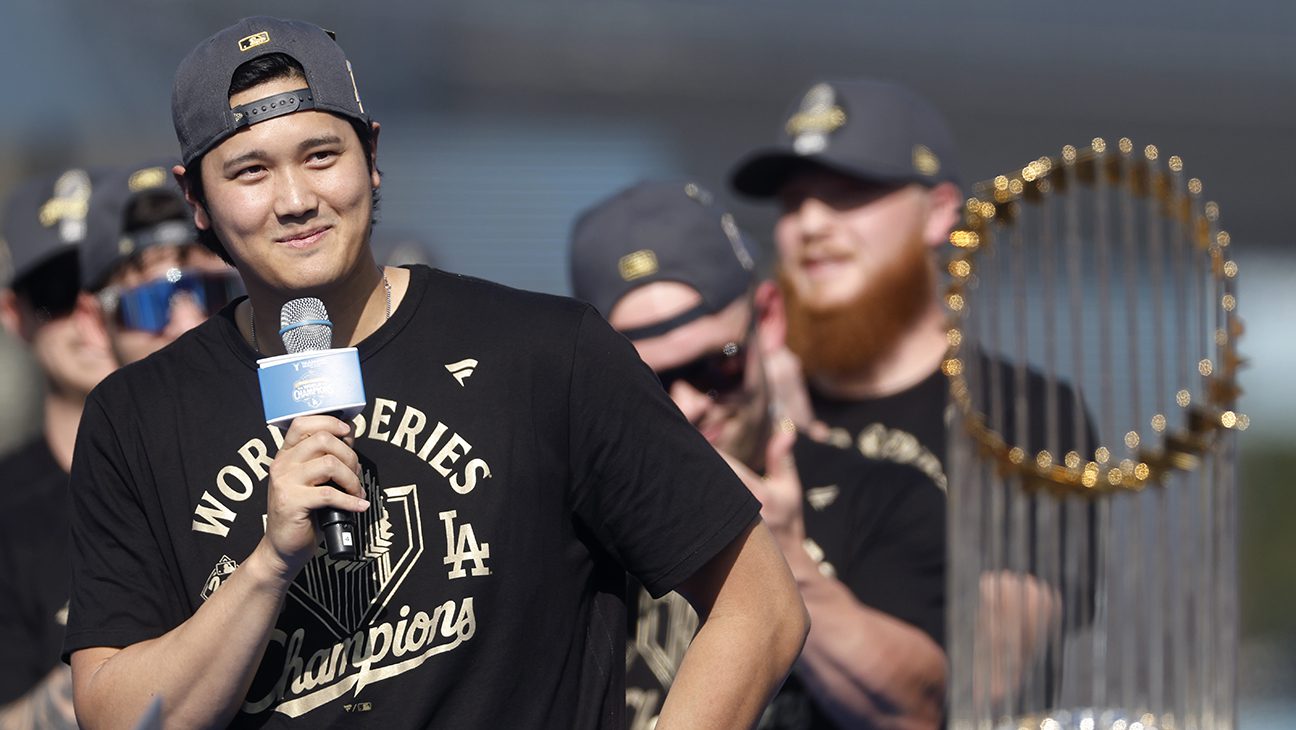
The series had so many moments — center fielders trucking left fielders, base-running blunders, walk offs, extra-innings games. What will you remember the 2025 World Series for, ultimately?
Then on the other side, you have a whole country that hasn’t won in 32 years, led by baseball royalty — Vlad Guerrero Jr., we saw his father play for 17 years. A Hall of Famer who never won a title, and Vlad was trying to have his Joe Carter moment to give the ring to his father. From an analyst point of view, this is the yummiest, most delicious, easiest series to cover. One of my mentors, John J. Filippelli, who started the YES Network for George Steinbrenner, says every good series has the three S’s: Superstars, Strategy and Storyline, and we had that in abundance.
Big picture, a lot of the data and analytics has stolen the game away from us. And we’re bringing the glory days back that you and I fell in love with, which is a little bit more unscripted. There’s nothing worse when something’s scripted, right? When you’re trying to figure out exactly what you’re going to do — no matter what the outcome is or what’s going on or who’s hurt — at 10 o’clock in the morning for what’s going to happen at 10 o’clock at night. And what was reintroduced was starting pitching. Nothing drives me crazier than a starter in a World Series game, and then you’re going to have eight or seven pitchers pitching. So great starting pitching, great strategy, the game in motion, fantastic defense. The Blue Jays— their last error was made Oct. 5, right? It’s just incredible. They played all these days. We’ve probably had more hit and runs in this World Series than the last five or seven combined. It was really, really old-school baseball.
And the Dodgers, the class of baseball, the first team in Major League Baseball history to surpass a billion dollars in gross revenue. If they’re lucky, there’s probably two NFL teams that have gone over a billion dollars. The Dallas Cowboys have, and I’m not sure who the other is, if any. So, the Dodgers are really just a master class at all levels. It’s not just about just about having riches, it’s about taking those riches and deploying the right capital into the right players with the right strategy. And here you go.
Back in your day, when you were the highest-paid player in the game, was the concept of Ohtani’s contract-structure even around?
I was actually surprised [by Ohtani’s contract]. I’ve never seen a contract where you get a $700 million guarantee, but over the length of the contract, you only get $20 million, which is two a year. I was having a hard time wrapping my head around that.
I started in the major leagues at 18, a few months moved from my high school at Westminster Christian. I was this innocent kid playing with Ken Griffey Jr. and Lou Pinella and Jay Buhner and Randy Johnson. I signed this contract, and I literally overnight became public enemy No. 1. I felt like I committed a felony or something. Publicly, I really had made no major mistakes, no missteps — it was all pretty good. And everywhere I went, I got destroyed by other fans. That was wildly confusing as a 24 year old. What makes me really happy is a paradigm shift that we’ve had a quarter century later. You have Ohtani at $700 million; Juan Soto almost at $800 million. These guys have become iconic heroes, celebrated as they should. The power shifted from ownership to players.
A huge part of your docuseries is, of course, you coming clean about PED usage that you had previously denied or at least deflected. Not bullshitting ourselves can be a lifelong process — clearly you’ve come a long way. How truthful would you say you were in the doc?
You saw it, right?
Yeah.
It was very, very raw. I don’t think in a three-episode thing you can be 100 percent honest about everything.
Because of omission.
Right. But what was covered was very, very, very accurate.
You’ve dated several very public figures, but none are in the docuseries. Your ex-wife, of course, is. There’s an audience for that part of a tell-all. How come you didn’t go there?
Part of the few rare benefits of getting a bit older is that hopefully you get a little smarter. You get more pattern recognition, and one of the things that has served me well is having a little bit more low profile of a life. I enjoy my life today more than I ever have. I’m incredibly grateful, I have two beautiful daughters. I’m surrounded by people I love and respect. Being a part of team ownership with the Minnesota Timberwolves and the Lynx is the dream of my life that I’m living out with one of my best friends in Mark Lore. I’ve never been big about sharing my private life — and less now.
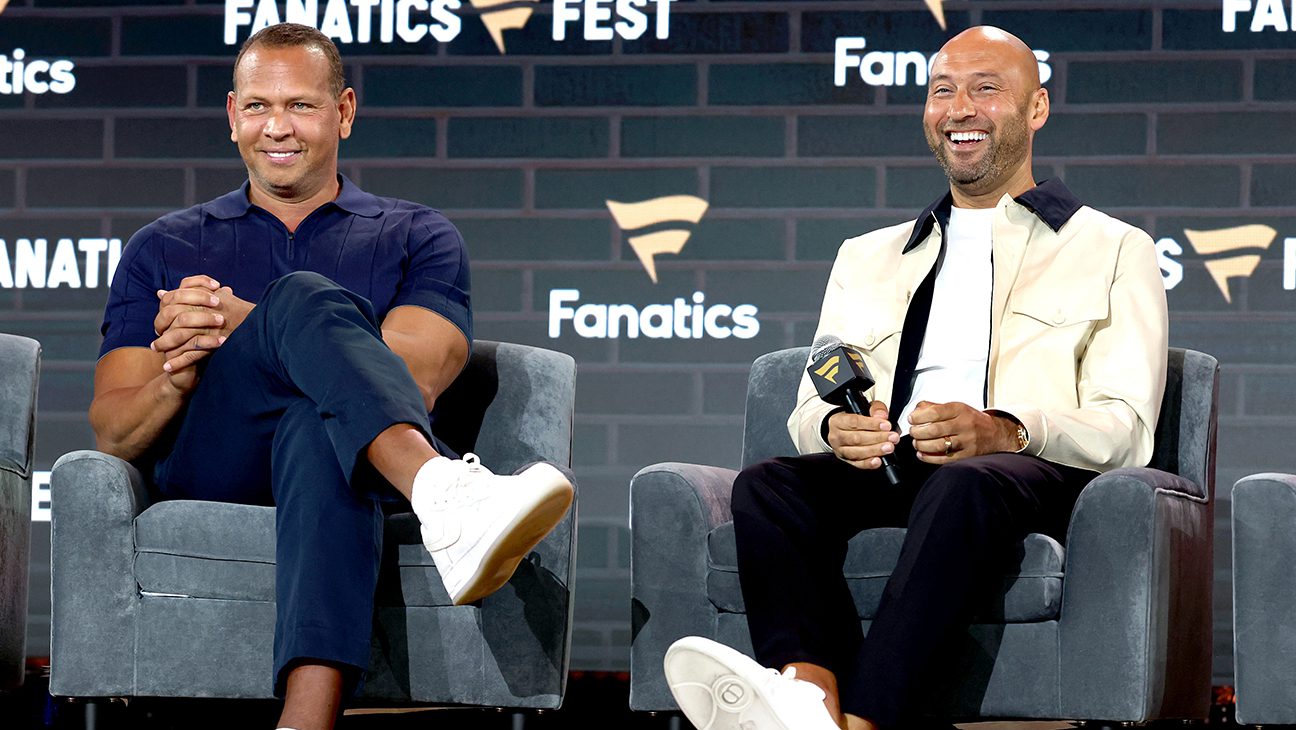
My unpopular sports opinion is that there isn’t a “clutch” gene, and that those who seem to perform in the biggest moments are the benefactors of opportunity and coincidence in a small sample size, and those who do not are the victims of the same. One of the knocks on you was that you weren’t clutch, which ended when you won us the 2006 World Series. Aaron Judge is kind of in the same boat today — what are your thoughts on being “clutch”?
I think it’s impossible to not to be clutch and drive in 2,000 runs or score 2,000 runs or hit .300 in your career — or close to .300 — in 15,000-20,000 at-bats. There’s got to be a clutch gene in there somewhere. You’ve got to find some clutch RBIs, right? And I feel the same way about Aaron Judge.
I don’t believe in stats in October, I believe in moments. Miguel Rojas isn’t going to have the best stats in the history of the game, but he had one of the most memorable moments in the last century.
You know who Mr. November is?
[Derek] Jeter.
Mr. October?
Reggie [Jackson].
So my point is that it’s the moments, not statistics. I learned this because Derek said it before Game 7. What Derek said about himself was, paraphrasing, “I stunk that series, but I had a pretty cool moment.”
One thing that wasn’t totally clear to me in the series is, did you buy your late therapist’s home? Or just get access for the shoot?
No [it was just for the film]. Just for the record, it’s in the middle of nowhere. I would fly to Denver Sunday night, have dinner and check into this little kind of treehouse hotel in the middle of nowhere. But it was really charming and dark and cool. You land in Denver and drive like an hour and a half through the snow, very slow, and then I would be there. My therapy would start at nine o’clock and it would end at five o’clock every day, Monday through Friday. It’s called intense therapy — it was the hardest thing I had to do in my life.
When you came to the Yankees from Texas, the consensus was you were a better shortstop than Jeter. You switched to third base and played very well there, but it was never your best position. In hindsight, would the Yankees have made more World Series with you at short and Derek at third?
No, I don’t think we would have been any better. Derek’s a Hall-of-Fame shortstop, many gold gloves. I can see you’re very smart baseball fan and a great student of the game, but I honestly think people are overly obsessed with Derek and I.
I agree, in terms of personal relationship.
My number-one thing that I’m most proud of — and I think he mentioned it in his documentary — is that he said, “One of the things I respect about Alex is that he gave me his word that he was coming to be a third baseman and a third baseman only. And after 15 years of being his teammate or so, he did exactly that. I never heard one rumor that he wanted my position.”
Look how cool life is. You cut almost 20 years later — I’m the shortstop on our Fox desk, and now he’s playing third base.
***
Rodriguez is the chatty face in front of the lens, but the two behind the camera, Chopra and LeDrew, also have a lot to say about their latest project, which follows sports-documentary “first-name vs.” collabs Tom vs. Time and Stephen vs. The Game — especially LeDrew. THR asked both men to answer a few key questions via email, purposefully independent of Rodriguez’s hazel eyes.
Read that mini Q&A below.
***
Did you find Alex to be 100 percent truthful and forthcoming?
GOTHAM CHOPRA In the totality of the project across the two-plus years that we were in production, yes, we got an honest and accountable version of the mistakes he made in the past. Did he answer fully every single question we asked in the 20-plus interviews we probably did during all that time? No. But I am not sure anyone would really be capable of that, considering how long ago some of these events happened and because I think he still feels a lot of shame and embarrassment from some of those things. I believe him when he says — in his own words — he’s still a “work in progress” and finds himself occasionally falling back into bad habits where he says either things he thinks will sound best, or that are “truthful enough” that it will enable him to slip by without having to get into all the details.
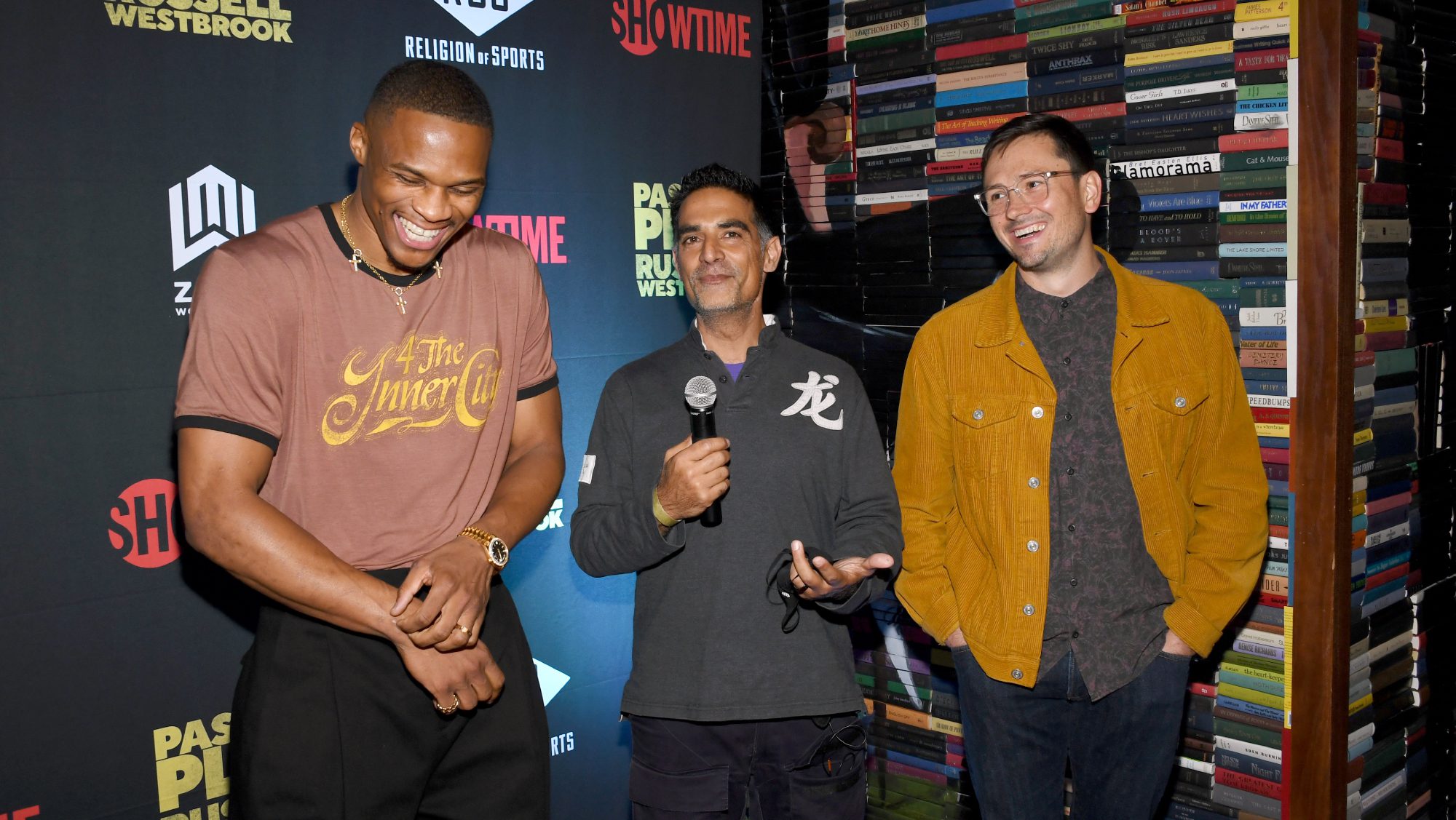
ERIK LEDREW To the extent any of us can be 100 percent truthful and forthcoming about the most painful moments of our lives: Yes. Absolutely. Getting there was a process as well, much like therapy — two steps forward one day, one-and-a-half steps backward the next. It was a long, taxing, non-linear process. Demanding for Alex, certainly, but also for us. Not just from a factual perspective, which was of course paramount, but also a humanist perspective. When you ask someone to wade knowingly into their shit and on-camera: a) you’ve gotta go first; and b) you’ve got to make space for doubt, resistance and interpersonal conflict.
And if today’s not the day to be 100 percent truthful, maybe we can get 70 percent of what we need and come back tomorrow. You try to design the process to get as many bites at the apple as possible. Not just in the chair, but in the car, in the snow, at 40,000 feet, during breakfast, after a cocktail, etc.
We’re also looking for a greater truth than a quick reference, bullet-point fact sheet could capture — I want honesty, but also emotional truth. Not just what happened and how, but how did it feel — put us in your shoes — and, perhaps above all, why?
Those kinds of truths don’t come easily to any of us — we’re lucky if they come at all in most cases. And in this case, I have so much compassion and respect for Alex’s willingness to trust us and trust the process, even when — especially when — it really fucking hurt.
In those moments when fear and anxiety and shame threatened to undermine, derail or otherwise deep-six this film, I tried to remind Alex that, if he wasn’t scared and anxious and slightly triggered, we wouldn’t be doing our jobs. An ethos our resident rockstar/creative therapist Lindsay Shookus repeated as often as possible to every single one of us when the shit hit the fan. This isn’t to say we were behaving like wrecking balls in Alex’s psyche — though I’m sure it felt that way to him at times, and the feeling was probably mutual — but if you hope to create anything of depth, nuance and substance, you’ve gotta approach this territory with reverence and sensitivity. Respect, yes, but grace and compassion, non-judgement above of all, even as you continue to press inexorably on his pressure points.
This isn’t just a documentary-purist, bleeding-heart POV I’m extolling here — whether fiction film or non. We storytellers would all do well to approach our material with a high degree of respect for the pain of being alive. It may sound counter-intuitive, but this actually sharpens the result. It’s really the only way you’re gonna make anything that cuts deep enough to draw blood — and if you’re not trying to make something like that, a work of guts and integrity, then what the hell are you doing?
To quote the late, great Billy Wilder, “If you’re not playing with fire, you’re wasting my time” — words to live by.
To his credit, Alex understood this. Even in our most contentious, fraught moments (like that phone call at 6:45 a.m. on Christmas Eve). Alex knew it would hurt the project to bullshit us. Of course, that didn’t necessarily make it hurt him any less in the moment. Sometimes, you’ve gotta just let a triggered person burn themselves out and calmly say, “I hear you, man. That sucks. Let’s go again.” Easier said than done, of course.
Was anything off limits? I couldn’t help but notice none of his very high-profile relationships with public figures were mentioned. Obviously his ex-wife is a participant.
CHOPRA There were no “rules of engagement” so no, nothing was off limits. In terms of his past relationships, we did refer to them visually in some of the sections about his crazy off-field life, indiscretions, ubiquity on Page Six etc. when he first joined the Yankees. And again, he talked candidly about those mistakes and regrets. In terms of his most recent high-profile relationship with Jennifer Lopez, we had made a conscious effort to really focus on his baseball career — and specifically his PED use — and not necessarily to do the total biopic. Alex definitely pushed us to include his purchase of and role with the Timberwolves, but we told him, “Sorry pal, maybe for the sequel!”
LEDREW In terms of subject matter, no, and that was something we had to have clear alignment on from the start. If he wasn’t gonna go there, then we were all wasting our time. These kinds of epic docs take too much time and energy to strive for anything less than the greatest possible result. We agree we would talk about everything — the highs and lows. The grand, creative bargain we struck at the outset, before we’d pitched anything to anyone went something to the effect of: We’ll honor the rise, but you better go hard on the fall. I remember Alex nodded gravely, brows pinched, and saying “good, ok” and “people are smart, they know when you’re full of shit.” Once that was explicitly agreed, we could lean on it anytime we felt like the process was stalemating.
There were certain individuals, maybe some of them implied by your question, who were never going to be involved in this project, for whatever reason. These people weren’t so much an “off-limits” prerogative as they were people we considered including at various points for a variety of reasons, but ultimately decided were best left out. Alex has lived a spectacularly messy, gloriously complicated life and there are a lot of people who he’s had to work hard to make amends with. As long as we could tell the story coherently, and with a high-degree of integrity, then we weren’t interested in dragging certain people from Alex’s past into the film proper for the sake of a stunt or a sound bite that wasn’t genuinely illuminating and intimately connected to Alex’s central conflict in some way. Either our subjects were relevant, compelling characters of agency and depth in the narrative we were exploring, and in which case, we interviewed them — or they weren’t, and so we didn’t.
It’s worth mentioning, there were only two interview requests that were declined: Alex’s former agent, Scott Boras, and former MLB commissioner Bud Selig. I wish we’d had the opportunity to interview them, but it’s their right to decline. I think they said enough at the time on the record that their voices are represented in a way that’s fair and accurate, but they can be the judge of that.
It was our intent to make a film of integrity and vision, and anyone willing to spend the runtime of Lawrence of Arabia with Alex vs. ARod — I’ll hope we have earned that time. But I’ll let them be the judge of that, too.
***
HBO and HBO Max premiered the first of three Alex vs. ARod episodes last night — the final two episodes will roll out over the next two Thursdays.
HiCelebNews online magazine publishes interesting content every day in the TV section of the entertainment category. Follow us to read the latest news.

